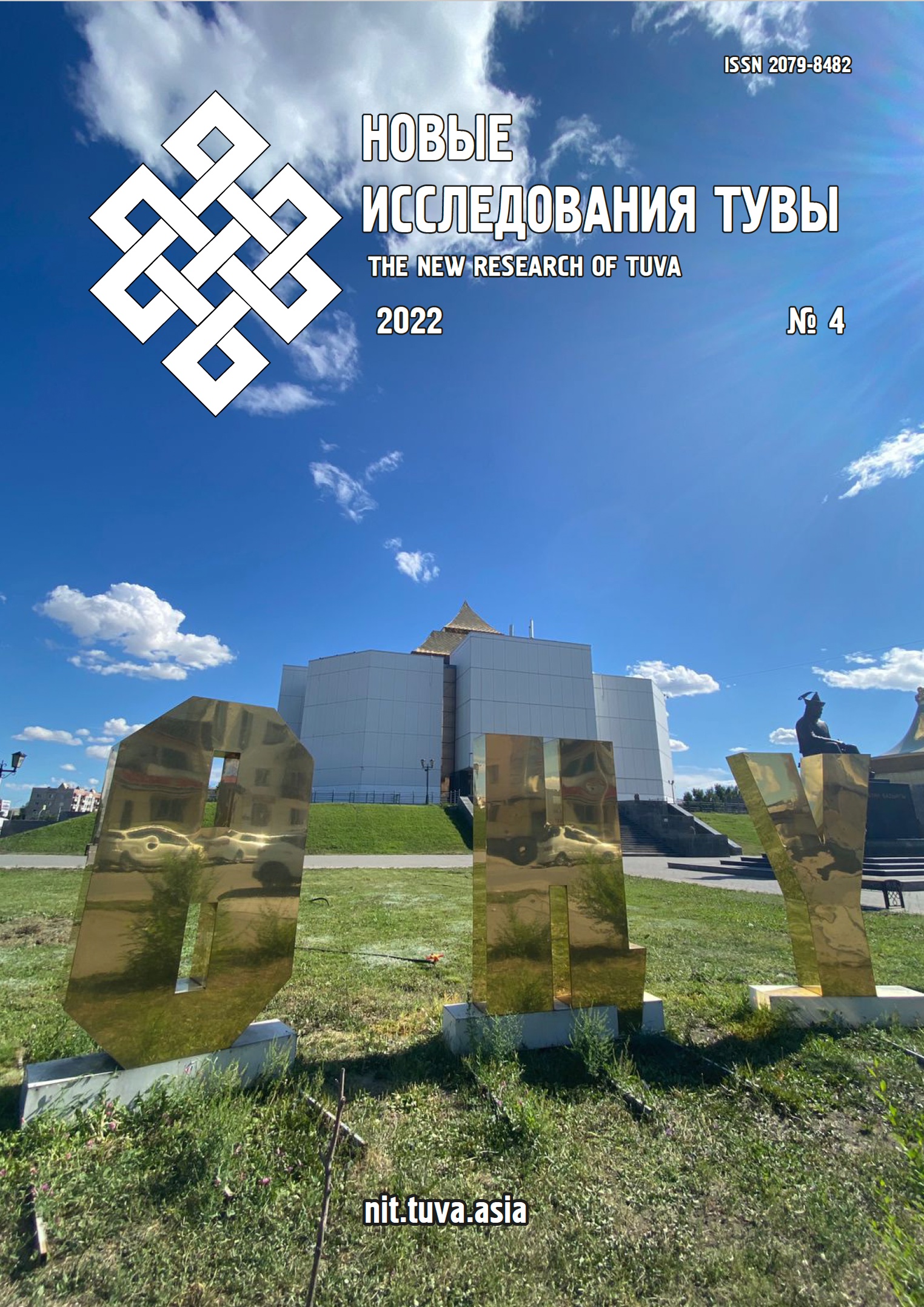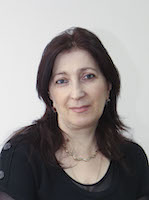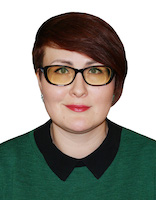Current issues of demography and training of demographers in Tuva
DOI:
https://doi.org/10.25178/nit.2022.4.12Keywords:
demographic policy; demographic education; Republic of Tuva; professional standard; educational standard; Tuvan State UniversityAbstract
The article presents a comprehensive approach to substantiating the need for demographers in the Republic of Tuva. The authors summarize studies of the demographic development and situation in Tuva. We consider some issues of demographic education in Russia and teaching of certain disciplines in the Republic of Tuva. A special attention is paid to the normative and legal acts regulating the state demographic policy in the region. The data of Rosstat, including the Office of the Federal State Statistics Service for Krasnoyarsk Krai, the Republic of Khakassia and the Republic of Tuva, are taken into account.
We have identified the key indicators characterizing the demographic situation in Tuva in the period from 1990 to 2021, including negative ones. There is an absence of measures aimed at reducing (neutralizing) the influence of such indicators. The need for experts capable of adequately assessing the current demographic situation who are ready to construct predictive models and design an adequate demographic policy is justified.
It has been found out that organizations in the Republic of Tuva feel the need for professionals to fill vacant positions in 2022. We have analyzed some Tuvan educational organizations. The flagship university was identified — Tuvan State University (TuvSU). In the Republic of Tuva, 98.98 percent of all students study in this HEI. Educational programs that are being implemented at TuvSU have been studied, the possibility of both the introduction of particular demographic disciplines and the implementation of training of demographers in the region has been evaluated.
References
Abylkalikov, S. I. (2021) Osobennosti demograficheskogo razvitiia Tuvy: vklad migratsii v demograficheskii balans [Features of the demographic development of Tuva: Contribution of migration to the demographic balance]. New Research of Tuva, no. 4, pp. 131–142. (In Russ.). DOI: https://doi.org/10.25178/nit.2021.4.10
Abylkalikov, S. I. and Baimurzina, G. R. (2022) Osobennosti demograficheskikh protsessov v gorodakh Kyzyl i Elista v 2011–2020 gody: sravnitel’nyi analiz [Demographic processes in the towns of Kyzyl and Elista in 2011–2020: A comparative study]. New Research of Tuva, no. 2, pp. 34–52. (In Russ.). DOI: https://doi.org/10.25178/nit.2022.2.3
Anaiban, Z. V. (2016) Sovremennye etnodemograficheskie kharakteristiki molodezhnykh grupp Tuvy i Khakasii [Contemporary ethnodemography of youth in Tuva and Khakassia]. New Research of Tuva, no. 2, pp. 90–104. (In Russ.).
Anaiban, Z. V. (2018) Trudovaia zaniatost' i sotsial'no-professional'nye orientatsii molodezhi sovremennoi Tuvy [Employment and socio-professional orientations of contemporary Tuva’s youth]. New Research of Tuva, no. 2, pp. 112–131. (In Russ.). DOI: https://doi.org/10.25178/nit.2018.2.6
Anaiban, Z. V. (2020) Sovremennaia migratsionnaia situatsiia v Respublike Tyva [Contemporary migration situation in the Republic of Tuva]. Sciences of Europe, no. 49–4 (49), pp. 62–66. (In Russ.).
Antonov, A. I. (1999) Demograficheskoe budushchee Rossii: depopuliatsiia. Navsegda? [Demographic future of Russia: Depopulation. Forever?]. Sotsiologicheskie issledovaniia, no. 3, pp. 80–87. (In Russ.).
Arkhangel'skii, V. N. and Zaiko, E. S. (2021) Linii reproduktivnogo povedeniia [Lines of reproductive behavior]. Problemy sotsial'noi gigieny, zdravookhraneniia i istorii meditsiny, no. 29, pp. 1374–1380. (In Russ.). DOI: http://doi.org/10.32687/0869-866X-2021-29-s2-1374-1380
Akhmetova, G. F. (2022) Migratsionnye protsessy v natsional’nykh respublikakh s raznym urovnem razvitiia chelovecheskogo potentsiala (na primere Bashkortostana, Tatarstana i Tuvy) [Migration processes in national republics with different levels of human development: The cases of Bashkortostan, Tatarstan and Tuva]. New Research of Tuva, no. 2, pp. 53–69. (In Russ.). DOI: https://doi.org/10.25178/nit.2022.2.4
Badmaeva, N. V. and Natsak, O. D. (2021) Sovremennaia trudovaia migratsiia iz Kalmykii i Tuvy: ekonomicheskie, sotsiokul’turnye i gendernye aspekty [Modern labor migration from Kalmykia and Tuva: Economic, socio-cultural and gender aspects]. New Research of Tuva, no. 4, pp. 186–205 (In Russ.). DOI: https://doi.org/10.25178/nit.2021.4.14
Valiakhmetov, R. M., Baimurzina, G. R., Turakayev, M. S. and Samba, A. D.-B. (2021) Etnosotsial’nye osobennosti zaniatosti naseleniia v respublikakh Tuva i Bashkortostan [Ethnic and social features of employment in the republics of Tuva and Bashkortostan]. New Research of Tuva, no. 4, pp. 206–222 (In Russ.). DOI: https://doi.org/10.25178/nit.2021.4.15
Vishnevskii, A. G. (1976) Demograficheskaia revoliutsiia [Demographic revolution]. Moscow, Statistika. 240 p. (In Russ.).
Voloshina, I. A. (2017) Professional'nye standarty — instrument obespecheniia kachestva personala [Professional standards — a tool for ensuring the quality of personnel]. Dopolnitel'noe professional'noe obrazovanie v strane i mire, no. 4, pp. 1–8. (In Russ.).
Gaifullin, A. Yu. (2022) Etnodemograficheskie kharakteristiki molodezhi v respublikakh Tyva i Bashkortostan [Ethnodemographics of youth in the republics of Tuva and Bashkortostan]. New Research of Tuva, no. 2, pp. 128–142. (In Russ.). DOI: https://doi.org/10.25178/nit.2022.2.9
Golenkova, Z. T., Kosharnaia, G. B. and Kosharnyi, V. P. (2018) Vliianie obrazovaniia na povyshenie konkurentosposobnosti rabotnikov na rynke truda [Influence of education on improved competitiveness of employees in the labour market]. Integratsiia obrazovaniia, no. 22 (2), pp. 262–273. (In Russ.).
Golenkova, Z. T., Goliusova, Yu. V. and Samba, A. D.-B. (2021) Transformatsiia regional'nogo sotsial'no professional'nogo prostranstva (na primere Respubliki Tyva) [Transformation of the regional social and professional space (on the example of the Republic of Tyva)]. Sotsiologicheskaia nauka i sotsial'naia praktika, vol. 9, no. 3, pp. 167–183. (In Russ.). DOI: https://doi.org/10.19181/snsp.2021.9.3.8440
Gonchikov, Ts. D., Mandyt, M. K., Gomboev, B. O., Urbanova, Ch. B. and Khal'baeva, S. R. (2019) Migratsiia naseleniia kak faktor formirovaniia i razmeshcheniia naseleniia regiona (na primere Respubliki Tyva) [Human migration as a formation factor and location of the population in the region (on the basis of the Republic of Tuva)]. Izvestiia Dagestanskogo gosudarstvennogo pedagogicheskogo universiteta. Estestvennye i tochnye nauki, vol. 13, no. 1, pp. 56–65. (In Russ.).
Dabiev, D. F. (2018) Professional'nye predpochteniia naseleniia Tuvy v kontekste ekonomicheskoi kul'tury [Career preferences of Tuva population in the context of economic culture]. New Research of Tuva, no. 2, pp. 132–148. (In Russ.). DOI: https://doi.org/10.25178/nit.2018.2.7
Evdokimov, A. I. (2019) Vneshnie migratsionnye protsessy v Respublike Tyva v otsenkakh mestnogo naseleniia [External migration processes in the Republic of Tyva in local population assessments]. Mezhdunarodnyi zhurnal gumanitarnykh i estestvennykh nauk, no. 11–2 (38), pp. 146–149. (In Russ.). DOI: https://doi.org/10.24411/2500-1000-2019-11771
Egorychev, A. M. and Rostovskaya, T. K. (2021) Perspektivy razvitiia professional'nogo obrazovaniia v usloviiakh globalizatsii mirovogo soobshchestva [Prospects for the development of professional education in a globalization world community]. CITISE, no. 1, pp. 55–64. (In Russ.). DOI: http://doi.org/10.15350/2409-7616.2021.1.05
Karmanov, M. V., Kuchmaeva, O. V. and Petrjakova, O. L. (2015) Demograficheskaia bezopasnost': teoriia, metodologiia, otsenka [Demographic security: Theory, methodology, evaluation]. Statistics and Economics, no. 4, pp. 123–128. (In Russ.). DOI: https://doi.org/10.21686/2500-3925-2015-4-123-128
Kuular, L. Y., Arakchaa, K. D. and Oiun, M. T. (2012) Problemy i rezervy snizheniia smertnosti naseleniia Respubliki Tyva [Problems and reserves of reducing mortality in the Republic of Tyva]. Kyzyl, TuvSU Publ. 97 p. (In Russ.).
Kurs demografii [Demography course] (1974) / ed. by A. Ia. Boiarskii. 2nd ed. Moscow, Statistika. 455 p. (In Russ.).
Lomonosov, M. V. (2011) O sokhranenii russkogo naroda [On the preservation of the Russian people] / comp. and ed. by O. A. Platonov. Moscow, Institute of Russian Civilization. 848 p. (In Russ.).
Mandyt, M. K. (2017) Respublika Tyva kak region ustoichivogo estestvennogo prirosta naseleniia [The Republic of Tuva as a region of sustainable natural population growth]. Uspekhi sovremennogo estestvoznaniia, no. 7, pp. 91–95. (In Russ.).
Mongush, S. P. (2021) Ekonomika narodonaseleniia i demografiia. Traditsionnoe prirodopol'zovanie v formirovanii sovremennogo prostranstvennogo razvitiia territorii (na primere Respubliki Tyva) [Population economics and demography. Traditional nature management in the formation of modern spatial development of the territory (the case of the Republic of Tuva)]. Aktual'nye voprosy sovremennoi ekonomiki, no. 11, pp. 692–705. (In Russ.). DOI: https://doi.org/10.34755/IROK.2021.40.20.054
Natsak, O. D. (2021) Gendernye i demograficheskie osobennosti rynka truda Respubliki Tyva: tendentsii i perspektivy [Gender and demographic features of the labor market of the Republic of Tuva: Trends and prospects]. Population, vol. 24, no. 2, pp. 120–130. (In Russ.). DOI: https://doi.org/10.19181/population.2021.24.2.11
Novoselova, S. V. and Denisenko, M. B. (2012) Osnovy demografii [Fundamentals of demography]. Minsk, IP “Al'tiora — zhivye kraski”. 134 p. (In Russ.).
Oydup, T. M. and Kylgidai, A. Ch. (2021) Vypuskniki shkol kak osnova chelovecheskogo kapitala regiona: na primere Respubliki Tyva [School graduates as the basis of the human capital of the region on the example of the Republic of Tyva]. Vestnik Instituta sotsiologii, vol. 12, no. 3, pp. 176–188. (In Russ.). DOI: https://doi.org/10.19181/vis.2021.12.3.743
Ondar, E. A. (2015) Demograficheskoe razvitie Dzun-Khemchikskogo kozhuuna (po itogam Vserossiiskoi perepisi naseleniia 2010 goda) [Demographic development of Dzun-Khemchik kozhuun (based on the results of the All-Russian Population Census of 2010)]. Kyzyl, GBU “Research Institute of Medical and Social Problems and Management of the Republic of Tuva”. 56 p. (In Russ.).
Rostovskaya, T. K., and Zolotareva, O. A. (2021) Professional'nyi standart «demograf» kak faktor formirovaniia novoi modeli kadrovogo potentsiala [Professional standard “Demographer” as a factor of formation of a new human resources model]. Sotsiologicheskaia nauka i sotsial'naia praktika, vol. 9, no. 2, pp. 82–95. (In Russ.). DOI: https://doi.org/10.19181/snsp.2021.9.2.8106
Rostovskaya, T. K., Shabunova, A. A. and Davletshina, L. A. (2022) Demograficheskoe obrazovanie v sovremennoi Rossii: protivorechiia potrebnostei i vozmozhnostei [Demographic education in modern Russia: Mismatch between the needs and opportunities]. Ekonomicheskie i sotsial'nye peremeny: fakty, tendentsii, prognoz, vol. 15, no. 2, pp. 55–72. (In Russ.). DOI: https://doi.org/10.15838/esc.2022.2.80.4
Rybakovskii, L. L. (2015) Kontseptsiia demograficheskoi politiki Rossii: opyt razrabotki i puti sovershenstvovaniia [The concept of demographic policy of Russia: Development experience and ways to improve]. Sotsiologicheskie issledovaniia, no. 9, pp. 62–70. (In Russ.).
Ryazantsev, S. V. and Khramova, M. N. (2022) Novaia migratsionnaia real'nost' v epokhu COVID-19 [New migration reality in the era of COVID-19]. Sotsiologicheskie issledovaniia, no. 3, pp. 150–152. (In Russ.). DOI: https://doi.org/10.31857/S013216250019220-5
Samba, A. D. (2020) Izmeneniia v sotsial'no-professional'noi strukture regiona (na primere Respubliki Tyva) [Changes in the social and professional structure of the region (on the example of Republic of Tyva)]. Teoriia i praktika obshchestvennogo razvitiia, no. 8, pp. 18–29. (In Russ.). DOI: https://doi.org/10.24158/tipor.2020.8.2
Saryglar, S. A. (2019) Sotsiologicheskii analiz migratsionnoi situatsii v Respublike Tyva [Sociological analysis of the migration situation in the Republic of Tuva]. Social Integration and Development of Ethnic Cultures in the Eurasian Space, no. 8–2, pp. 233–238. (In Russ.).
Sizikova, V. V. and Anikeeva, O. A. (2016) Modelirovanie professional'nykh standartov spetsialistov sotsial'noi sfery kak osnova preobrazovaniia sotsial'noi praktiki [Modeling professional standards for experts in social services as a basis for the social practice transformation]. Servis v Rossii i za rubezhom, vol. 10, no. 8, pp. 105–119. (In Russ.).
Sistema znanii o narodonaselenii [Population knowledge system] (1976) / ed. by D. I. Valentey. Moscow, Statistika. 367 p. (In Russ.).
Soboleva, S. V. (2015) Demograficheskaia situatsiia v Sibiri v kontekste obshcherossiiskikh tendentsii [Demographic situation in Siberia in the context of nationwide trends]. Regional Research of Russia, vol. 5, pp. 154–162. (In Russ.). DOI: https://doi.org/10.1134/S2079970515020100
Tanzy, M. V., Saaia, S. K., Shershneva, V. A., Vainshtein, Yu. V. and Ondar, Ch. M. (2020) Iurta kak geometricheskaia model' v obuchenii matematike v Tuve [The yurt as a geometric model in teaching mathematics]. New Research of Tuva, no. 4, pp. 80–91. (In Russ.). DOI: https://doi.org/10.25178/nit.2020.4.6
Tatarova, S. P. and Zateeva, N. A. (2018) Sistema obrazovaniia kak faktor razvitiia sel'skogo sotsiuma v Respublikakh Buriatiia i Tyva [The education system as a factor in the development of rural society in the republics of Buryatia and Tuva]. Gumanizatsiia obrazovaniia, no. 6, pp. 29–34. (In Russ.).
Tkachenko, A. A. (2017) Istoriia i sovremennye problemy prepodavaniia kursa «Demografiia»: rossiiskaia spetsifika [History and current problems of teaching the course “Demography”: Russian specifics]. In: Demograficheskoe obrazovanie i izuchenie narodonaseleniia v universitetakh (k 50-letiiu kafedry narodonaseleniia) (Deviatye Valenteevskie chteniia) [Demographic education and population studies at universities (to the 50th anniversary of the Department of Population) (The Ninth Valentey Readings) : A collection of papers and abstracts of speeches / ed. by I. E. Kalabikhina. Moscow, Lomonosov MSU Faculty of Economics. 632 p. Pp. 195–203. (In Russ.).
Tovuu, S. S., Kara-Sal, N. M. and Sanchaa, T. O. (2020) Matematicheskoe obrazovanie v usloviiakh razvitiia sistemy obrazovaniia v Respublike Tyva [Mathematical education in the development of the educational system in the Republic of Tuva]. New Research of Tuva, no. 4, pp. 45–63. (In Russ.). DOI: https://doi.org/10.25178/nit.2020.4.4
Tiukhteneva, S. P. (2018) Etnicheskoe predprinimatel'stvo bez migratsii (na primerakh iz Tuvy i Kalmykii) [Ethnic entrepreneurship without migration: The cases of Tuva and Kalmykia]. New Research of Tuva, no. 2, pp. 149–167. (In Russ.) DOI: https://doi.org/10.25178/nit.2018.2.8
Urlanis, B. Ts. (1963) Rozhdaemost' i prodolzhitel'nost' zhizni v SSSR [Birth rate and life expectancy in the USSR]. Moscow, Gosstatizdat. 137 p. (In Russ.).
Khenner, E. K. (2018) Professional'nye znaniia i professional'nye kompetentsii v vysshem obrazovanii [Professional knowledge and professional competencies in higher education]. The Education and Science Journal, vol. 20, no. 2, pp. 9–31. (In Russ.). DOI: https://doi.org/10.17853/1994-5639-2018-2-9-31
Khol'shina, M. A. (2012) Analiz vzaimosviazei demograficheskogo i sotsial'no-ekonomicheskogo razvitiia v Respublike Tyva [Analysis of the interrelations between demographic and socioeconomic development in the Republic of Tuva]. Geografiia i prirodnye resursy, no. 2, pp. 104–108. (In Russ.).
Tsaregorodtsev, Yu. N., Bashina, O. E. and Karmanov, M. V. (2019) Obrazovanie kak osnova formirovaniia chelovecheskogo potentsiala i chelovecheskogo kapitala [Education as basis for development of human potential and human capital]. Sotsial'naia politika i sotsial'noe partnerstvo, no. 1, pp. 16–24. (In Russ.).
Chernova, K. V. and Bedrina, E. B. (2020) Razvitie demograficheskogo obrazovaniia v vysshikh uchebnykh zavedeniiakh Rossii [Development of demographic education in higher education institutions of Russia]. Population, vol. 23, no. 4, pp. 125–139. (in Russ.). DOI: https://doi.org/10.19181/population.2020.23.4.12
Chetyrova, L. B. (2018) Trud v etnicheskoi kul'ture kochevnikov postsotsializma (na primere buriat, kalmykov, tuvintsev) [Labor in post-socialist ethnic culture: The cases of Buryats, Kalmyks and Tuvans]. New Research of Tuva, no. 2, pp. 40–71. (In Russ.). DOI: https://doi.org/10.25178/nit.2018.2.3
Churilova, E. Yu. and Salin, V. N. (2018) Sovremennye problemy prepodavaniia distsipliny «statistika» v vysshei shkole [Current problems of teaching the discipline “Statistics” in higher school]. Sovremennoe pedagogicheskoe obrazovanie, no. 2, pp. 114–116. (In Russ.).
Shelestov, D. K. (1983) Demografiia: istoriia i sovremennost' [Demographics: History and modernity]. Moscow, Finansy i statistika. 271 p. (In Russ.).
Yarnykh, E. A., Davletshina, L. A. and Agentova, G. V. (2021) Perspektivy razvitiia obrazovatel'noi sistemy v Rossii [Development prospects of Education System in Russia]. Vestnik of the Plekhanov Russian University of Economics, no. 3, pp. 44–55. (In Russ.). DOI: https://doi.org/10.21686/2413-2829-2021-3-44-55
Published
How to Cite
For citation:
Ryazantsev S. V., Rostovskaya T. K. and Davletshina L. A. Aktual’nye problemy demografii i podgotovki demografov v Tuve [Current issues of demography and training of demographers in Tuva]. New Research of Tuva, 2022, no. 4, pp. 146‑168. (In Russ.). DOI: https://doi.org/10.25178/nit.2022.4.12
Issue
Section

This work is licensed under a Creative Commons Attribution-NonCommercial 4.0 International License.

Author(s) license holder(s) grant rights for their work to the journal (grantee of a license) under the simple non-exclusive open license in accordance with Art. 1286.1 «Open license for a research work, work of literature or fine arts», Civil Code of the Russian Federation.
New Research of Tuva publishes articles under the Creative Commons Attribution-NonCommercial license (CC BY-NC).
Since it is an open license, author(s) reserve the right to upload the article to their institutional repository, submit it to another journal (if it allows republications), or republish it on their own website (in full, or in part).
However, several conditions apply here:
a) The republished version must always contain the name(s) and affiliation(s) of the author(s), the original title and the hyperlink to the original version on the New Research of Tuva website;
b) It must be in open access, free of charge, and no category of readers must be in any way whatsoever advantaged over general readership.
c) should the contribution be submitted elsewhere by its author(s) without substantial modification (30% or more of original text unchanged), the body of the article should contain a disclaimer that the original version was published in New Research of Tuva (with a link to the respective page)
The CC-BY-NC is a non-revocable license which applies worldwide and lasts for the duration of the work’s copyright.











